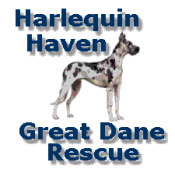|
Disc Disease
The bones of the backbone
that protect the spinal cord are called "vertebrae". Soft
cushions are located between these bones which serve as "shock
absorbers" protecting the very delicate nerves that lie within the
spinal column. These cushions are called "discs". Each disc
consists of a tough outer ring surrounding a jelly-like core. With age,
the core hardens to a cottage cheese consistency while the outer ring
looses some of its strength. The disease is commonly seen in poodles,
dachshunds, and other breeds with long backs.

A sharp movement or sudden
force may cause the outer ring to rupture, allowing the core material to
protrude into the spinal canal and put pressure on the spinal cord. Disc
disease can occur anywhere along the spinal canal. This pressure may
result in pain in the neck, back, abdomen, a reluctance to jump or use
stairs, lame to paralyzed limbs, and loss of control over bladder or
bowels.
The disc can also be
damaged from an injury, such as jumping off furniture, resulting in the
condition called a "slipped disc". In this condition, the disc
has been forced out of its normal location and pushes against the spinal
cord itself causing pressure on the nerves.
Medical treatment may
relieve pain and inflammation, but surgery is often required to relieve
severe pressure. Surgery involves scraping out the diseased disc
material to relieve the pressure and prevent future episodes of pain.
Neck lesions usually require
surgical intervention whereas lower spinal problems may or may not
require surgery. The problem tends to reoccur in other disc locations,
especially if the pet continues to do a lot of jumping and is
overweight.
The treatment recommended by
your veterinarian, and the prognosis for recovery is based on the
severity of the signs, the rapidity in which the problem developed, and
the time elapsed since the problem began.
Diagnosis is based on
clinical signs and x-rays. If medical therapy is utilized, complete rest
with exercise restriction is vital and instructions must be
followed explicitly. Early treatment increases the chances of
recovery. In mild cases, drugs are given to decrease inflammation and
swelling of the spinal cord. Muscle relaxants, antibiotics, and
pain-relieving medications are also given.
If surgery is advised,
laboratory work and special x-ray studies may be needed prior to
surgery. In either method, the recovery may be quite gradual over a
period of many weeks. Unfortunately, not all cases respond to treatment,
and the animal may be partially, or completely permanently disabled.
Signs may develop gradually
or suddenly. The sudden onset of intervertebral disc disease is an
emergency situation. If you suspect disc disease in your pet call us
immediately.
Signs include:
-
rear leg weakness
-
pain in the neck, back
or abdomen
-
rigid abdomen
-
pain when picked up
-
reluctance to move
-
loss of urine and
bowel control
-
reluctance to jump or
use stairs
-
lame to paralyzed
limbs
REMEMBER, once this problem
has occurred, it can happen again. Keeping your dog's weight down
and discouraging jumping will help a great deal!
All images and text on this site Copyright © 1998-2026 Harlequin Haven Great Dane Rescue, Inc. unless otherwise credited. Use of any image or text without written permission is expressly forbidden. All rights reserved.
|

